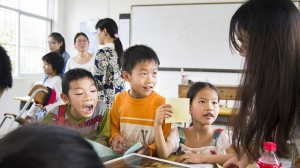
Have you ever considered working as an elementary school counsellor but were not sure how to implement your program? How do I connect to 5 to 11 year old? How do I go about making the biggest impact I can? Here are 5 things to think about if you want to work with younger children in the school setting.
Kids do not always know or understand why they need to see you. Many students get referred to the counsellor by family and/or staff members. Perhaps it is for bullying, friendship issues, disruptive behaviors, or personal issues at home. Whatever the case, not all students will understand and so it becomes your job to work on the specifics, and do not assume anything.
Class lessons work very well for larger school issues. Bullying, friendship, respect, listening are all areas in which students can use a little extra support. Rather than pointing out the few in the class that need attention in this area, it works effectively to implement classroom lessons that all students can participate in. Classmates get to see other children’s points of view and help each other when they see issues arising. Also, class lessons can build into bigger class rules and incentive programs that can be used for everyone.
Most students like school wide reward programs. Be prepared to implement a wide variety of school wide projects such as GOTCHA campaigns, fundraising for local causes, Student of the Week/Month and other planned school based programs that offer incentives and praise. When you have lots of students buying into the program it is more likely to catch on with those students who may need that extra motivation in the class, playground, hallways, etc. Large posters, signs and assemblies are helpful for students who really need the extra attention and praise.
Students will tell friends and classmates things they should not hear. Be prepared to get phone calls, emails and visits from parents and staff who are concerned about what their child disclosed to them about someone else in the school. Not all children have the ability to filter what they say and may tell students things that should be for adult ears only. The younger grades, I find, to be much more likely to ‘spill the beans’ sort of speak. We do have to take what is said seriously. HOWEVER, we must also inform the other adult about their obligation to child welfare. Telling the guidance counsellor does not get you off the hook.
Reviewing confidentiality is always a good idea. Elementary students are young and need to be reminded regularly about the roles of the counsellor and the obligation to report. If you tell a primary student in October, don’t expect them to remember that in November or December. My experience has been to review it briefly in every session just to be safe. Young children can sometimes disclose unknowingly so it is important they are aware of how confidentiality works.
*The views expressed by our authors are personal opinions and do not necessarily reflect the views of the CCPA